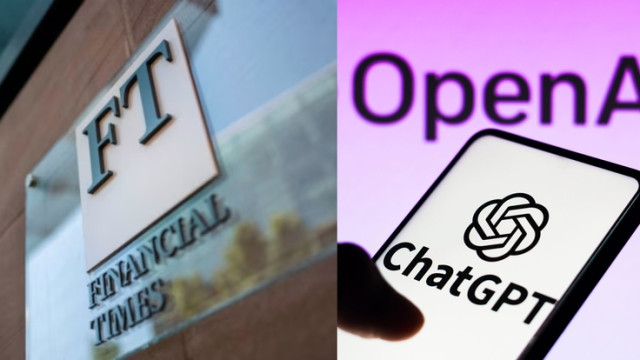The Financial Times (FT) has struck a deal with OpenAI, ChatGPT's parent company, to license its content and collaborate on the development of AI tools.
In a press release, the FT announced that users of ChatGPT, an AI-powered chatbot developed by OpenAI, will now have access to summaries, quotes, and links to FT articles.
Any information sourced from the FT within ChatGPT will be attributed to the publication, ensuring transparency and recognition of the source.
In exchange for licensing its content, OpenAI will collaborate with the FT to pioneer new AI products.
Notably, the FT is already utilizing OpenAI products, having deployed ChatGPT Enterprise as a customer.
Moreover, last month, the FT introduced a beta version of Ask FT, a generative AI search function powered by Anthropic's Claude large language model, enabling subscribers to search for information across the publication's extensive archives.
John Ridding, CEO of the Financial Times Group, emphasized the FT's continued commitment to "human journalism" despite partnering with OpenAI.
"It's right, of course, that AI platforms pay publishers for the use of their material," stated Ridding, underscoring the importance of ensuring AI products contain information from reliable sources.
OpenAI has established numerous agreements with news organizations to license content for training AI models.
Notably, Axel Springer, publisher of Business Insider, Politico, Bild, and Welt, recently signed a similar agreement with OpenAI to extract data from its articles.
Also, the Associated Press permits OpenAI to utilize its data for training purposes. However, reports suggest that OpenAI's licensing fees for content from publications range from $1 million to $5 million, significantly lower than offers from other entities like Apple.
The relationship between OpenAI and news organizations isn't without controversy. The New York Times filed a lawsuit against OpenAI and Microsoft in December 2023, alleging copyright infringement due to ChatGPT allegedly reciting Times content verbatim.
Similarly, The Intercept, Raw Story, and AlterNet filed a separate lawsuit against OpenAI and Microsoft in February, citing similar grievances.




















